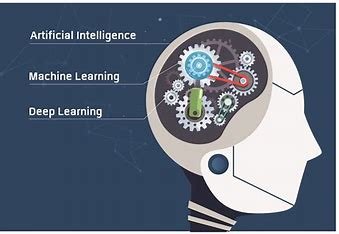The Promise of AI: Exploring the Possibilities of Machine Learning
Machine Learning

Table of Contents
- Introduction
- Understanding AI and Machine Learning
- Advancements in Machine Learning Algorithms
- Applications of Machine Learning in Various Industries
- Machine Learning in Healthcare
- Machine Learning in Finance
- Machine Learning in Transportation
- Machine Learning in Retail
- Machine Learning in Marketing
- Machine Learning in Education
- Machine Learning in Entertainment
- Ethical Considerations in Machine Learning
- Challenges and Limitations of Machine Learning
- Future Trends in Machine Learning
- Conclusion
- FAQs
Introduction
Artificial Intelligence key components of AI is machine learning, a branch of AI that enables computers to learn from data and improve their performance without being explicitly programmed. In this article, we will delve into the promise of AI and explore the vast possibilities of machine learning.
Understanding AI and Machine Learning
Machine learning, on the other hand, is a subset of AI that focuses on enabling machines to learn from experience and improve their performance over time. Machine learning algorithms allow computers to identify patterns in data, make predictions, and automate decision-making processes.
Advancements in Machine Learning Algorithms
Over the years, there have been significant advancements in machine learning algorithms, enabling more accurate predictions and faster processing of vast amounts of data. Algorithms such as deep learning and reinforcement learning have pushed the boundaries of what machines can accomplish. Deep learning algorithms, inspired by the structure and function of the human brain, have proven to be highly effective in tasks such as image recognition and natural language processing. Reinforcement learning algorithms allow machines to learn through trial and error, making them adept at tasks that require decision-making in dynamic environments.
Applications of Machine Learning in Various Industries
Machine learning has found applications in a wide range of industries, revolutionizing processes and improving efficiency.
Machine Learning in Healthcare
In the healthcare industry, machine learning is being utilized for diagnosing diseases, predicting patient outcomes, and personalizing treatment plans. Machine learning algorithms can analyze medical data, such as patient records and imaging scans, to identify patterns and assist healthcare professionals in making accurate diagnoses. Additionally, machine learning algorithms can help predict patient outcomes and optimize treatment strategies based on individual patient characteristics.
Machine Learning in Finance
Machine learning has transformed the financial sector by enhancing fraud detection, risk assessment, and algorithmic trading. By analyzing large volumes of financial data, machine learning algorithms can identify suspicious patterns indicative of fraudulent activities. Moreover, machine learning algorithms can assess the risk associated with investments and make data-driven predictions about market trends, enabling more informed decision-making.
Machine Learning in Transportation
The transportation industry has greatly benefited from machine learning, particularly in the areas of autonomous vehicles and route optimization. Machine learning algorithms power self-driving cars by analyzing sensor data in real-time and making decisions accordingly. These algorithms enable vehicles to navigate complex road conditions, detect objects, and make split-second decisions to ensure safety. Machine learning also plays a crucial role in optimizing transportation routes, reducing congestion, and improving fuel efficiency.
Machine Learning in Retail
In the retail sector, machine learning is used to analyze customer behavior, personalize recommendations, and optimize inventory management. By leveraging machine learning algorithms, retailers can gain insights into customer preferences, identify cross-selling opportunities, and deliver personalized shopping experiences. Machine learning also helps retailers optimize inventory levels by predicting demand patterns and reducing stockouts or overstock situations.
Machine Learning in Marketing
Machine learning has revolutionized marketing by enabling targeted advertising, customer segmentation, and sentiment analysis. Machine learning algorithms can analyze vast amounts of customer data, such as browsing history and social media activity, to identify potential customers and deliver personalized advertisements. These algorithms also enable marketers to segment customers based on their preferences and behavior, allowing for more effective targeting. Sentiment analysis using machine learning algorithms helps businesses gauge public opinion about their products or services, providing valuable insights for marketing strategies.
Machine Learning in Education
The field of education has witnessed the integration of machine learning to personalize learning experiences, assess student performance, and provide intelligent tutoring systems. Machine learning algorithms can analyze student data and adapt educational content based on individual strengths, weaknesses, and learning styles. These algorithms also enable educators to identify students who may need additional support and provide personalized feedback. Intelligent tutoring systems powered by machine learning can simulate one-on-one tutoring experiences, providing students with personalized guidance and support.
Machine Learning in Entertainment
Machine learning has made significant contributions to the entertainment industry, enhancing content recommendation systems and enabling immersive experiences. By analyzing user preferences and behavior, machine learning algorithms can suggest relevant movies, music, or articles, leading to a more personalized entertainment experience. Machine learning has also been instrumental in the development of virtual reality (VR) and augmented reality (AR) technologies, creating immersive and interactive experiences for users.
Ethical Considerations in Machine Learning
As machine learning continues to advance, ethical considerations become paramount. It is essential to address issues related to bias, privacy, and accountability. Bias in machine learning algorithms can lead to unfair decisions and perpetuate societal inequalities. Ensuring diverse and representative training data and regularly monitoring algorithmic outputs can help mitigate bias. Privacy concerns arise due to the extensive collection and analysis of personal data. Striking a balance between data utilization and privacy protection is crucial. Lastly, accountability and transparency in algorithmic decision-making are necessary to foster trust and ensure ethical practices.
Challenges and Limitations of Machine Learning
While machine learning offers immense possibilities, it also faces certain challenges and limitations. Some of the key challenges include the need for large and high-quality datasets, interpretability of complex models, and the risk of overreliance on machine-driven decisions. Additionally, concerns regarding data security and the potential impact on the job market require careful consideration. Addressing these challenges and limitations will be crucial to realizing the full potential of machine learning.
Future Trends in Machine Learning
The future of machine learning looks promising, with several exciting trends on the horizon. Some of the anticipated developments include the integration of machine learning with edge computing, federated learning, and the democratization of AI. Edge computing enables data processing and analysis to occur closer to the source, reducing latency and enhancing real-time decision-making. Federated learning allows multiple devices to collaboratively train models without sharing raw data, ensuring privacy while benefiting from collective knowledge. The democratization of AI aims to make AI technologies accessible to a broader audience, empowering individuals and small businesses to leverage the power of machine learning.
Conclusion
The promise of AI and machine learning is transforming various industries and shaping the future of technology. From healthcare to finance, transportation to retail, and education to entertainment, machine learning is revolutionizing processes, improving decision-making, and delivering personalized experiences. However, it is essential to navigate the ethical considerations, challenges, and limitations associated with machine learning to ensure its responsible and beneficial deployment. As we move forward, the continued advancements in machine learning hold immense potential for innovation and improvement in numerous aspects of our lives.
FAQs
Q1. How does machine learning work? Machine learning algorithms learn from data, identify patterns, and make predictions or decisions based on that learning. They analyze large volumes of data to find correlations and create models that can be used for various tasks.
Q2. What are some examples of machine learning applications? Machine learning is used in various applications such as personalized recommendations, fraud detection, autonomous vehicles, medical diagnosis, language translation, and many more.
Q3. Can machine learning replace human intelligence? Machine learning can automate certain tasks and assist in decision-making, but it is not intended to replace human intelligence. It complements human capabilities by augmenting efficiency and accuracy.
Q4. Is machine learning biased? Machine learning algorithms can be biased if the training data used is biased or if the algorithm is not designed to handle potential biases. It is crucial to address bias and ensure fairness in machine learning models.
Q5. What are the future trends in machine learning? Future trends in machine learning include the integration with edge computing, federated learning, and the democratization of AI, making AI more accessible and efficient.




